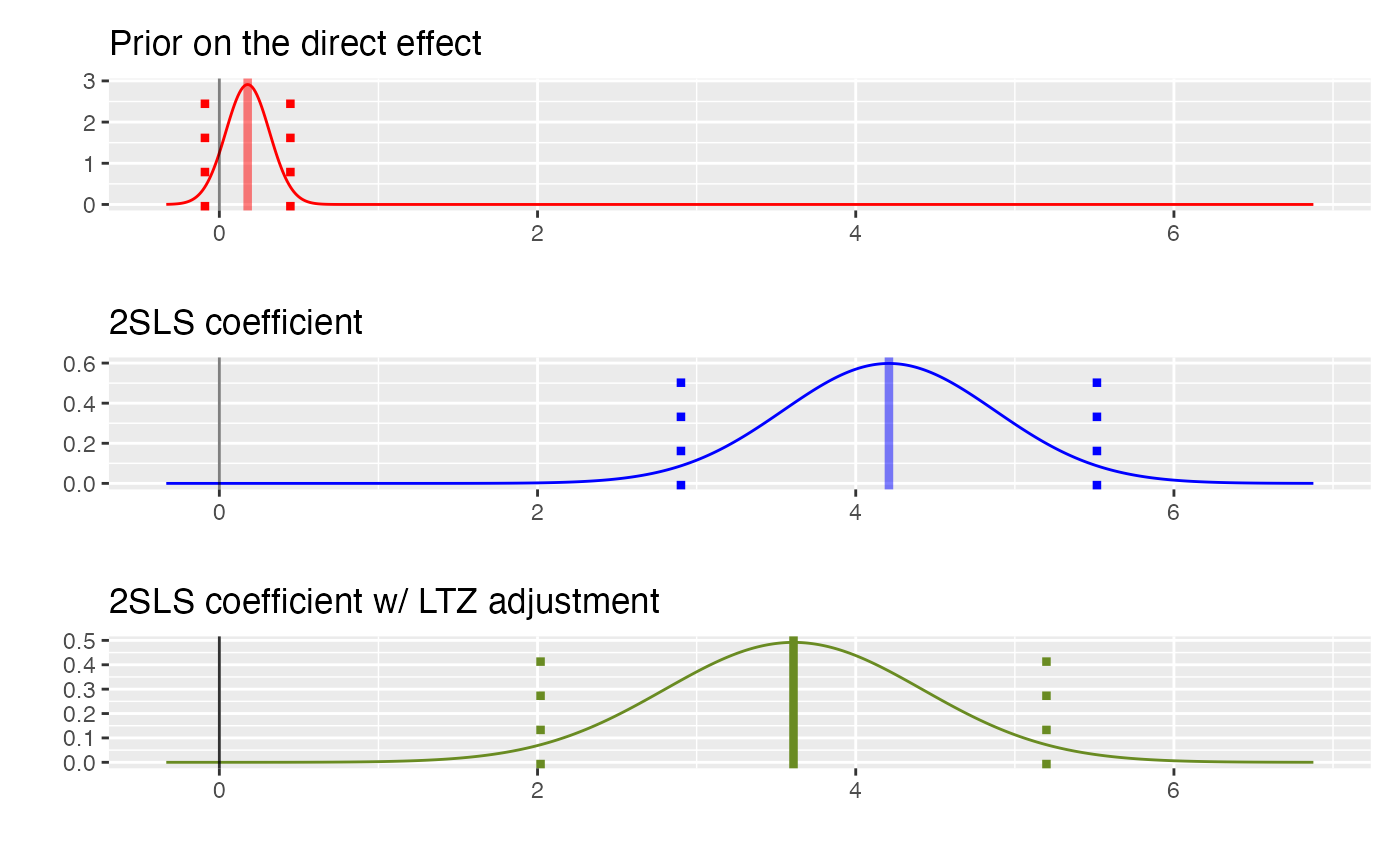Local-to-Zero Test
ltz.RdEstimates Local-to-Zero IV coefficients and SEs for a single instrument.
Arguments
- data
name of a dataframe.
- Y
a string indicating the outcome variable.
- D
a string indicating the treatment variable.
- Z
a vector of strings indicating the instrumental variables.
- controls
a vector of strings indicating the control variables.
- FE
a vector of strings indicating the fixed effects variables.
- cl
a string indicating the clustering variable.
- weights
a string indicating the variable that stores weights.
- prior
prior mean and standard deviation of the direct effect of instrument on outcome.
- prec
precision of results (4 by default).
Value
- iv
results from a 2SLS regression.
- ltz
results after local-to-zerio adjustment.
- prior
prior mean and standard deviation
References
Conley, Timothy G, Christian B Hansen, and Peter E Rossi. 2012. "Plausibly Exogenous." Review of Economics and Statistics 94 (1): 260–72.
Examples
data(ivDiag)
controls <- c('altitudine', 'escursione', 'costal', 'nearsea', 'population',
'pop2', 'gini_land', 'gini_income')
ltz_out <- ltz(data = gsz, Y = "totassoc_p", D = "libero_comune_allnord",
Z = "bishopcity", controls = controls, weights = "population",
prior = c(0.178, 0.137))
plot_ltz(ltz_out)
#> Scale for x is already present.
#> Adding another scale for x, which will replace the existing scale.
#> Scale for x is already present.
#> Adding another scale for x, which will replace the existing scale.
#> Scale for x is already present.
#> Adding another scale for x, which will replace the existing scale.
 library(testthat)
test_that("Check local-to-zero adjustment", {
expect_equal(as.numeric(ltz_out$ltz[1]), 3.6088)
})
#> Test passed 😸
library(testthat)
test_that("Check local-to-zero adjustment", {
expect_equal(as.numeric(ltz_out$ltz[1]), 3.6088)
})
#> Test passed 😸